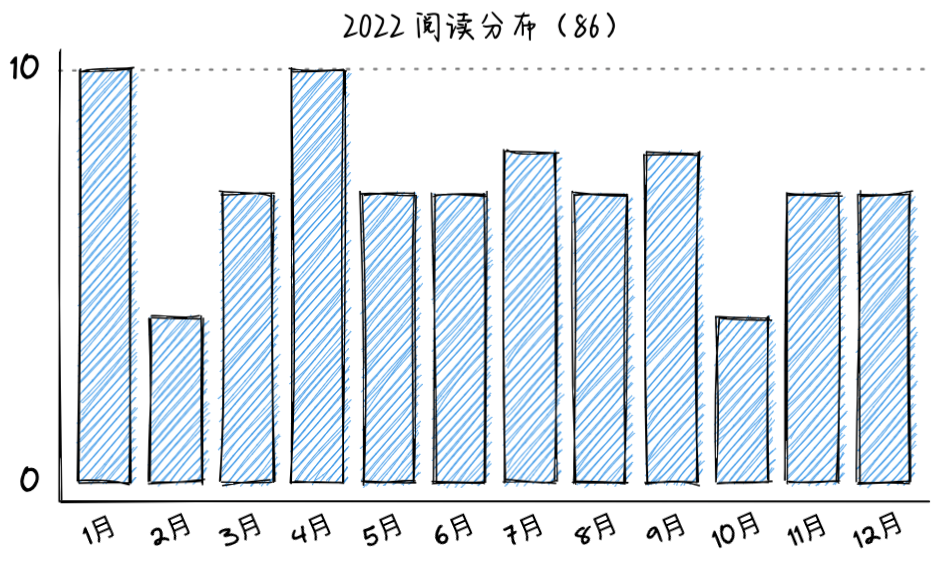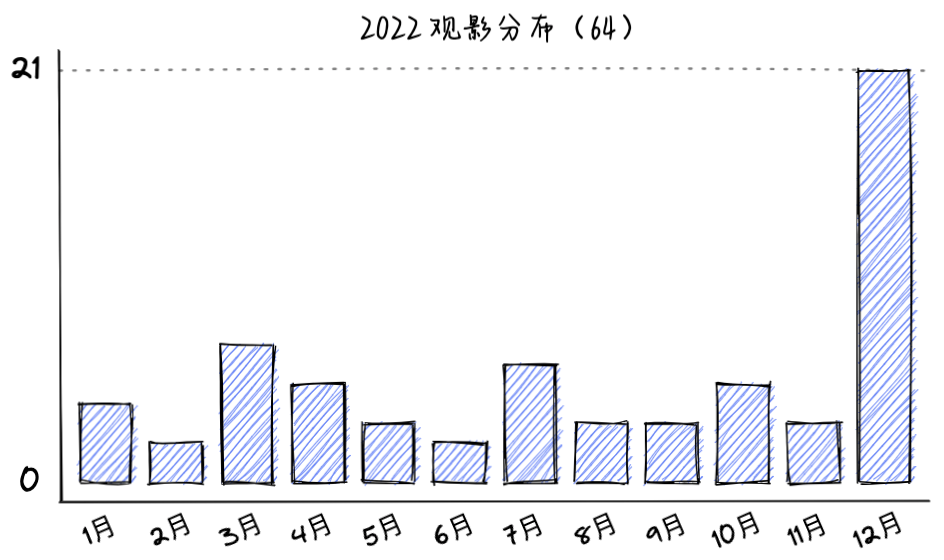请回答 二〇二二
核酸、封控、屯粮、呐喊、开放、屯药──二〇二二就这样过去了。
几乎每个中国人都经历了以上的一个或多个阶段,我自然也不例外。其中的心酸苦楚,只有经历过的人才懂得。
回望这一年,似乎和前两年一样空白,除了家和工作地,几乎没有去过任何地方。身体无法在路上,也只能让心灵在路上了──读书、观影,只剩下这两个方面可以回顾下。
今年读了什么?

三月,养成了以月为周期总结阅读记录的习惯。九月,为践行「读有所记,思有所痕」,开始在「随机漫谈」记录当日启发。
电影《卡萨布兰卡》里有句话说得好:如今你的气质里,藏着你走过的路,读过的书和爱过的人。中学时期听到这句文艺又装逼的台词,一下子就深深地烙在了我的脑海。
年中和朋友去万圣书园买书,聊起最近看的书,我笑称今年开始喜欢读一些政治、社会、哲学方面的书,兴许是老了,开始追求一些永恒的东西。
阅读,会影响一个人的气质;同样,一个人的经历也会影响他的阅读偏好。譬如我今年的阅读,有着明显的倾向,那就是探究中华大地下的种种疑惑行径之为什么。
- 为什么会「特立独行」地推行动态清零?
- 为什么会层层加码?
- 为什么人民甘受封控之苦?
- 太多太多为什么……
先说结论,我没有找到答案,但我并非一无所获。
一开始,我尝试去周树人的杂文和讽刺小说中寻找答案,我看到百年前的人和当今的人没有太大的区别。《祝福》里可怜的祥林嫂,甚至比徐州丰县那个被铁链锁住的妇女还要「幸福」,我们能说这是进步吗?
接着我遇到了阎连科,他用小说讲述那些无法记录的真实故事。《为人民服务》里深入人心的口号,是否已经沦为仅限特权阶级?恰如张宏杰描述的饥饿的盛世──少数人的盛世,由大多数人铺就。而我们当中的许多人,作为后来者、局内人,却仍旧听口号而振奋,数盛世而自豪,这不应该值得反思么?
文学终究只是记录与反思,能够回答「是什么」,而要探究「为什么」,还需要借助其他的书籍。
从孔飞力的清王朝思考,到傅高义、周雪光等学者的近现代研究;从 1768 年的叫魂案,到 1958 年起始的三年大饥荒,再到 1966 年起始的十年文化大革命,数百年来,这片土地上很多东西都改变了,但总有一些东西始终无法改变。
我读杨继绳的《墓碑》时,一开始读得很慢,因为那些文字宛如尖刀刺进心脏,久久不能呼吸。而后越读越快,一是各地人民的遭遇大抵相似,除了「惨」再无其他;二是事态的发展和历史如出一辙,我甚至能预测后续的发展。当知道类似的事情数十年又会再来一次,这种无力感压得人透不过气。
我没法继续写下去,但我不会停下探究的脚步。或许有一天能够真正明白其中的道理,又或者能够等到答案的降临。在此之前,我唯一能做的就是保持健康,留住记忆,继续思考。
今年看了什么?

今年共标记了 64 部影视,感谢它们给我无聊的生活带来一丝乐趣。大陆新推出的影视几乎没在看了,因为我不想把宝贵的生命浪费在低劣的产品上──尽管我知道这并不完全是影视从业者的原因。
一些老片还是值得看的,例如黄建新的都市三部曲:《背靠背,脸对脸》、《红灯停,绿灯行》、《站直啰,别趴下》。九十年代的影视圈,涌现出了一大批不错的电影,只可惜这样美好的时光维持不了多久。
对比之下,台湾的影视圈时不时还会给人一点惊喜,例如《血观音》、《大佛普拉斯》、《阳光普照》,尽管它们并非今年推出的,但仍旧让我对未来抱有期望。
今年还接触了一个播客叫「反派影评」,有几期播客讲述中国电影为何堕落至今,值得一听:
国产片不给力,幸亏还有外语片。今年八月看完《风骚律师 第六季》后,我感叹:今年的美剧就看到这了。果真,此后再也没有看到这么精良的剧集。十一月,《行尸走肉 第十一季》也迎来了大结局,陪伴了整个青春的丧尸们也说了再见。
小结
写完之后,我才发现行文过于悲观,但实际并非如此。我很庆幸今年能够遇到陀思妥耶夫斯基,他的《卡拉马佐夫兄弟》给我极大震撼。如果我远行只能带两本书,一本是《卡拉马佐夫兄弟》,另一本是朱光潜所译的《歌德谈话录》,后者长期是我的床头书,每次翻阅都能带给我平静。
扣一下本文的开头,这几年的经历,让大众形成了「宁可信其有」的心态。大多数情况下竟然还真应验了,这才是当下的荒诞之处。
当然,今年也并非全是烂事,抽空去了海边,去了环球影城……一些微不足道的小事,就足以让我满足,愿二〇二三有更多这样的小事。